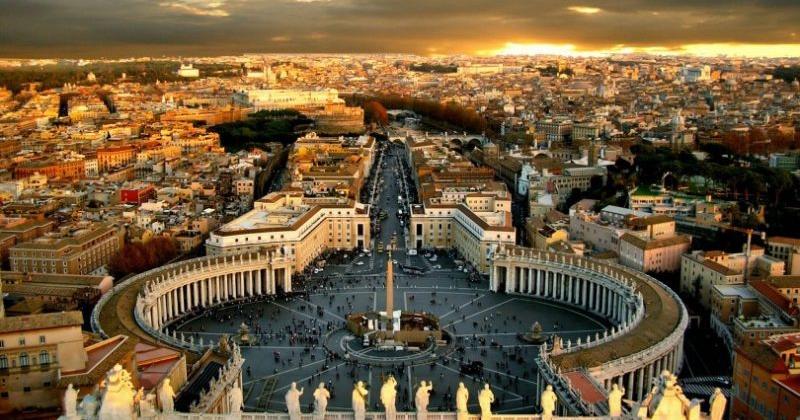On the occasion of the first anniversary of the election of Pope Francis as the Bishop of Rome, Catholic leaders nationwide have reflect on his papacy thus far, noting his call for every Catholic to evangelize.
“In a certain sense, by his style of interviews and public statements, he kind of throws the ball back in our court as well – and I don’t mean bishops, I mean all the faithful,” Bishop James Conley of Lincoln, Neb. told CNA March 6.
“And what I mean by that is that…it kind of falls upon us to put him in context, and to tell people what he means. And that’s part of the sensus fidelium, that’s part of, really, our baptismal charism: that the faithful also have the responsibility of articulating the teaching of the Church, so it doesn’t focus on one person, like the Pope, like a bishop; that we all have this responsibility of preaching the gospel, and explaining the Gospel, and articulating the Gospel.”
Since the election of Jorge Bergoglio as Pope on March 13, 2013, the world has been fascinated by the Roman Pontiff, as seen by him being named “Man of the Year” by several publications. He has so far given three interviews to secular publications, and one to a magazine of the Society of Jesus, for which he was ordained a priest.
Pope Francis’ personal style in these interviews and elsewhere, Bishop Conley said, “has given us an opportunity to put his words into context and to explain maybe some of the ambiguities, some of the lack of precision in his language. It’s not a bad thing.”
He emphasized that the Pope has said repeatedly that he is first and foremost a son of the Church and “has made it clear he has no intention of changing Church teaching on fundamental issues; but because of perhaps his style, or his way of doing interviews, it leaves a lot of room for us to explain what he really means.”
John Garvey, president of the Catholic University of America, told CNA that when Pope Francis’ words are misappropriated – as when his comment “who am I to judge” is taken out of context and used to support acceptance of the commission of homosexual acts – “someone ought to call out the appropriators on that.”
Yet at the same time, he said another misreading of Pope Francis’ message, “which some Catholics may fall victim to,” is “to say ‘yeah, yeah, yeah, fine about mercy, but let me tell you again about the rules.’”
Pope Francis “is saying that’s not the way to sell the faith,” Garvey emphasized. “The most interesting thing about him…is his emphasis on mercy, and his repeated talk about Jesus and the Gospels and the primacy of charity, rather than rules and laws.”
“If we want to evangelize, we need to describe what we love about the faith, (and) not the kinds of rules and laws that we all should, of course, attend to,” he said.
Garvey said Pope Francis’ message is that “what draws people to the faith is God’s mercy…if we respond to the message that he’s communicating – that we need to love God and our neighbours, that charity is paramount, that we need to take care of the poor, that the message of the Gospels is God’s mercy, and that’s what the Church is preaching – if we feel we need to respond to that by saying, ‘yeah, now he’s not telling you you have to obey all these rules about sex and fasting and take your pick,’ we’re kind of missing the point that he’s trying to communicate to us.”
“We should, none of us, feel the obligation to make up for the Pope’s failures in communication, by saying the things he says we shouldn’t be talking about all the time. What we ought to do, is pay attention to what he’s saying, and try to copy that style for a little while.”
Garvey also noted that an important effect of the first year of Pope Francis’ pontificate is “how he has kind of transcended liberal and conservative categories,” being both fully concerned with social justice and poverty, but also affirming Church teaching on “abortion and contraception and a hundred other things.”
He added that the Pope’s style is “a way of taking being Catholic out of politics, and situating it in the real world; and that’s been a really nice thing, I think.”
He also noted Pope Francis’ genuineness in his concern for the poor: “it’s who he is. The way he’s living is perfectly consistent with the message he’s preaching. He lives like a poor man, he takes care of the poor…it’s not just a token, it’s the best evidence of his sincerity.”
Carolyn Woo, president of Catholic Relief Services, said March 6 that “Francis has taught us many lessons in the first year of his papacy, reminding the faithful that the preferential option for the poor is a central mission of the Church…this has made his papacy particularly meaningful to those of us at Catholic Relief Services.”
“In washing the feet of the poor, in visiting the refugees on the Italian island of Lampedusa, Francis has demonstrated that it is necessary to go beyond words to deeds in service to the poor. This is the work that thousands of employees of CRS are engaged in every day around the world, in solidarity with the Catholic community in the United States. Francis has been an inspiration to us all.”
